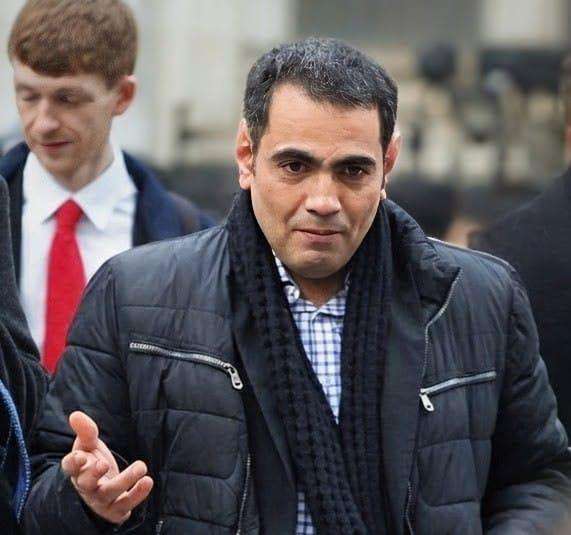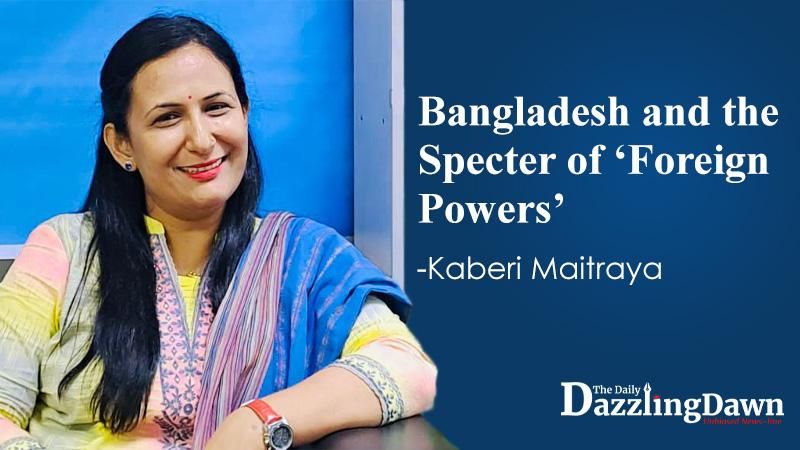C. Raja Mohan, a visiting professor at the South Asian Studies Institute of the National University of Singapore and the international affairs editor at the Indian media outlet The Indian Express, has delivered an analytical speech on the coup in Dhaka, Sheikh Hasina's downfall, Delhi’s role, and the Indian media’s concurrent 'foreign hand' conspiracy theories. This analysis was recently published by The Indian Express. Let’s take a look at that analysis.
Indian media outlets are circulating various intriguing theories about Sheikh Hasina's downfall. Indian media are claiming that the 84-year-old economist Dr. Muhammad Yunus is a "CIA agent" and that his conspiracy led to the ousting of the Awami League. They assert that Sheikh Hasina has lost India's support, which was her strongest regional ally.
In South Asia, the use of conspiracy theories has been prevalent for a long time. These theories often require no evidence and are difficult to disprove. Leaders in the region frequently resort to "foreign hands" theories to explain domestic issues.
During the latter half of the 20th century, conspiracy theories were common in Indian politics. Whenever Indira Gandhi faced opposition and resistance due to her authoritarian rule, she would blame the CIA. Even during the emergency declared in 1975, she and her leftist supporters blamed the country's "fascists and foreign 'imperialists'."
While many believe that "emerging India" is now more confident and secure, the shock of losing a "friend" in Dhaka has led Delhi to spawn new conspiracy theories. These theories stir political biases and discourage the general public from confronting real issues.
However, Sheikh Hasina was losing popularity over time. She had weakened her party and turned it into her personal property. Repeated election rigging, stringent control while in power, and economic challenges had caused resentment among the Bangladeshi people. Thus, the quota reform student movement eventually led to a political disaster.
Sheikh Hasina is not unique in this regard. She too has resorted to the same conspiracy theories. Perhaps, in her grief over losing power, she has been compelled to believe in these theories. Sheikh Hasina believes that the United States ousted her for not allowing them to establish a military base.
However, Sheikh Hasina is not the only South Asian leader blaming the U.S. for losing power. Former Pakistani Prime Minister Imran Khan has also made similar claims, asserting that the U.S. removed him from power for not allowing them to establish a base in Pakistan.
In reality, the U.S. is looking for opportunities to establish military bases in Asia to counter the Chinese military challenge. However, it is unreasonable to think that America is conspiring to establish bases in Bangladesh and Pakistan. Conspiracy theories do not require evidence. These theories overstate the power of the CIA, exaggerating its influence in South Asia.
For example, the CIA failed to oust the highly criticized Venezuelan President Nicolas Maduro in the recent elections. Similarly, the U.S. has failed to overthrow the Communist government in Cuba, which has been in power for over 60 years. Both countries are close to the U.S.
The CIA is not the only agency fueling the imagination of conspiracy theorists in South Asia. India’s own intelligence agency, the Research and Analysis Wing (RAW), is also blamed for government changes in Bangladesh.
When conspiracy theorists blame the "foreign hand," whether knowingly or unknowingly, they are pointing to a major failure of Indian institutions. If the CIA is alleged to have orchestrated a coup in Bangladesh right under India’s nose, it implies that Delhi failed to grasp the critical moment in Bangladesh's situation. A thorough examination of India's management and response to the emergence and spread of the current crisis in Bangladesh is necessary. Such an analysis would provide valuable lessons for maintaining regional policy.
It is important to remember that no power can completely control politics. Even if the power is global or regional, it is impossible to entirely dictate strategy. Moreover, any government, no matter how competent, is not immune to the risk of misunderstanding another country's situation.
Therefore, instead of finding solace in conspiracy theories, India's strategic community should closely examine the tragedy of Sheikh Hasina. As Shakespeare urged in his Richard II, "For God’s sake, let us sit upon the ground and tell sad stories of the deaths of kings."
Sheikh Hasina’s story is one of both victory and tragedy. She has survived against all odds and preserved the legacy of the nation’s liberation war. Over the past 15 years, she transformed Bangladesh into a rapidly growing economy, serving as a model for many developing countries, including inspiring Pakistan. Additionally, she helped overcome the history of division between India and Bangladesh, resolve border disputes, eliminate terrorism, enhance regional connectivity, and promote bilateral and regional trade. However, like all tragic heroes, she had some severe flaws. She was determined to concentrate power in her hands and failed to prevent political divisions over history. Despite her tragic end, Sheikh Hasina will be remembered as a significant historical figure in South Asia’s modern history.
India has ample reason to be disheartened by Sheikh Hasina’s ouster. However, recent events should not trap Delhi in the past. It must look towards the future. The new governments will need to work to maintain the strong foundation that Sheikh Hasina had built with India. Delhi should empathize with the student protesters seeking political freedom and broader economic opportunities. For immediate stability and long-term progress in Bangladesh, the U.S. will also remain an important partner.
In recent years, Delhi and Washington have grown closer on South Asian issues. Over the past few months, there has been a significant effort to reduce bilateral differences over Bangladesh. During the recent G-20 summit, Indian Prime Minister Narendra Modi introduced Sheikh Hasina to U.S. President Joe Biden. Modi also encouraged Washington to ease political pressure on Dhaka. Despite many questions about the January elections in Bangladesh, the Biden administration offered to cooperate with Hasina’s new government. Ultimately, the problem was not with Delhi or Washington. The issue was that Sheikh Hasina could not stop the internal collapse.
In conclusion, conspiracy theories will not weaken the structural relationships between India and the U.S. in South Asia and its waters. The current crisis in Bangladesh and the ongoing turmoil in Myanmar underscore the need for consultation and cooperation between India and the U.S. Cooperation in the Bay of Bengal and its coastal areas is critically important.








.svg)
